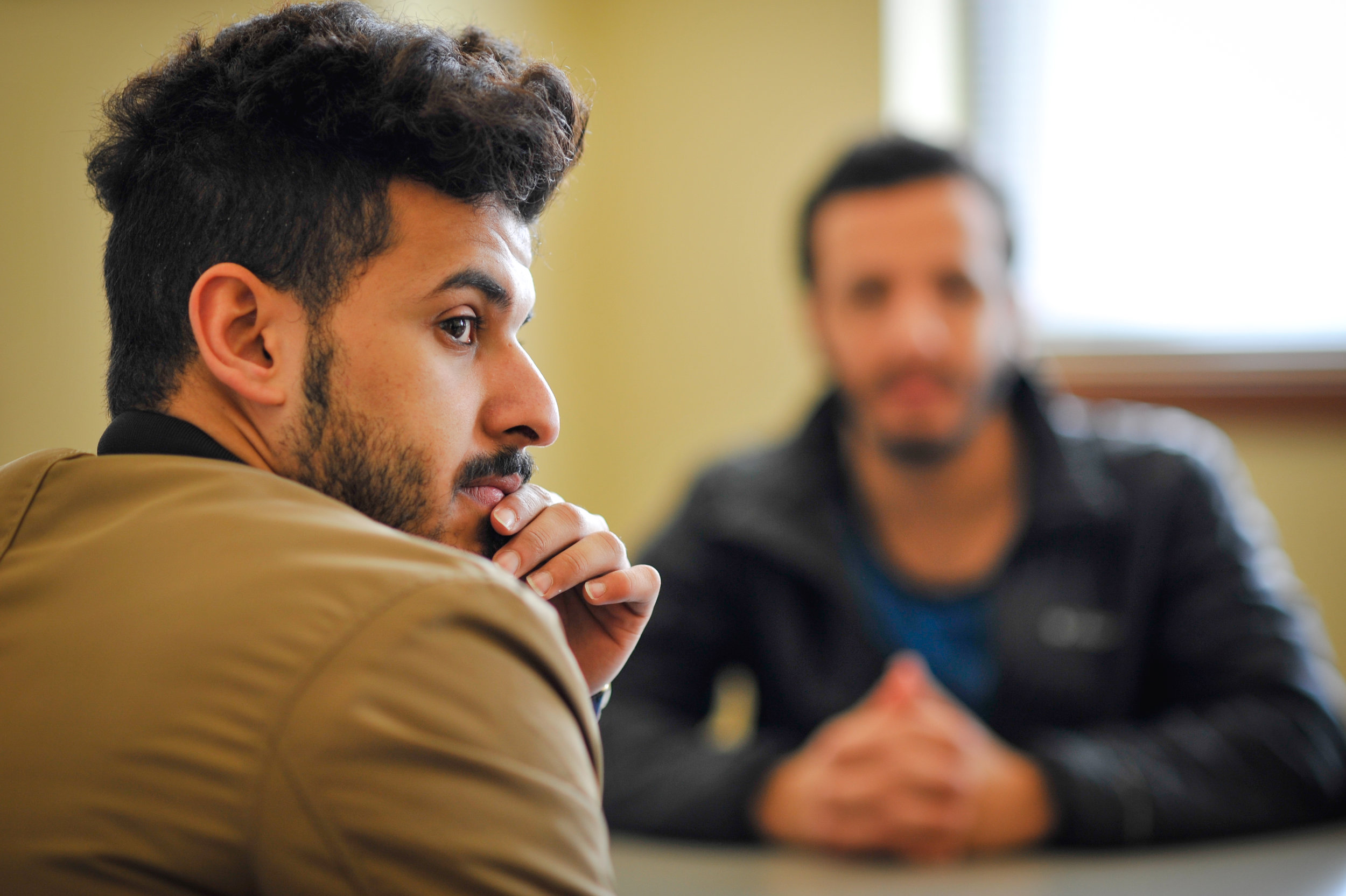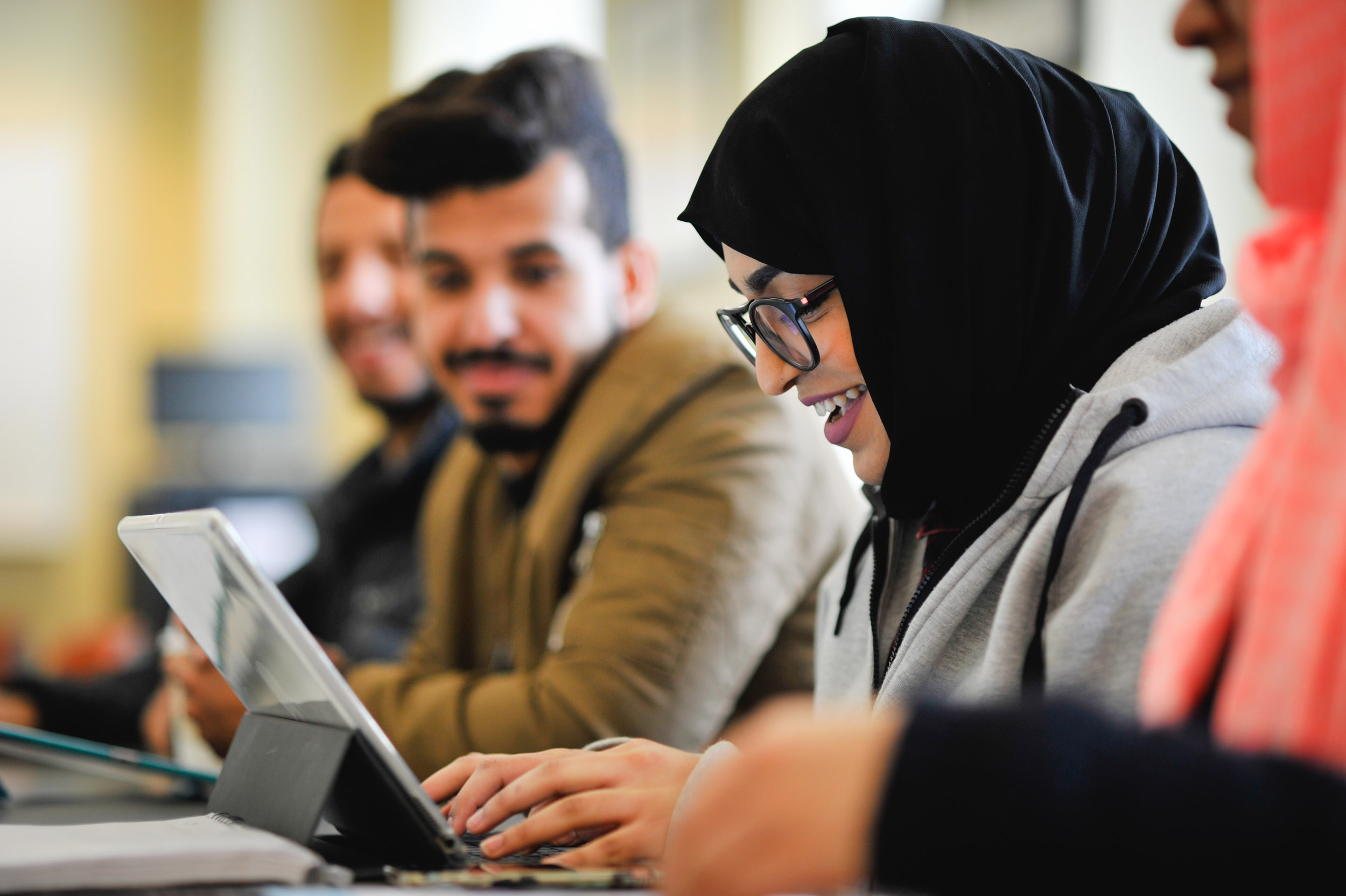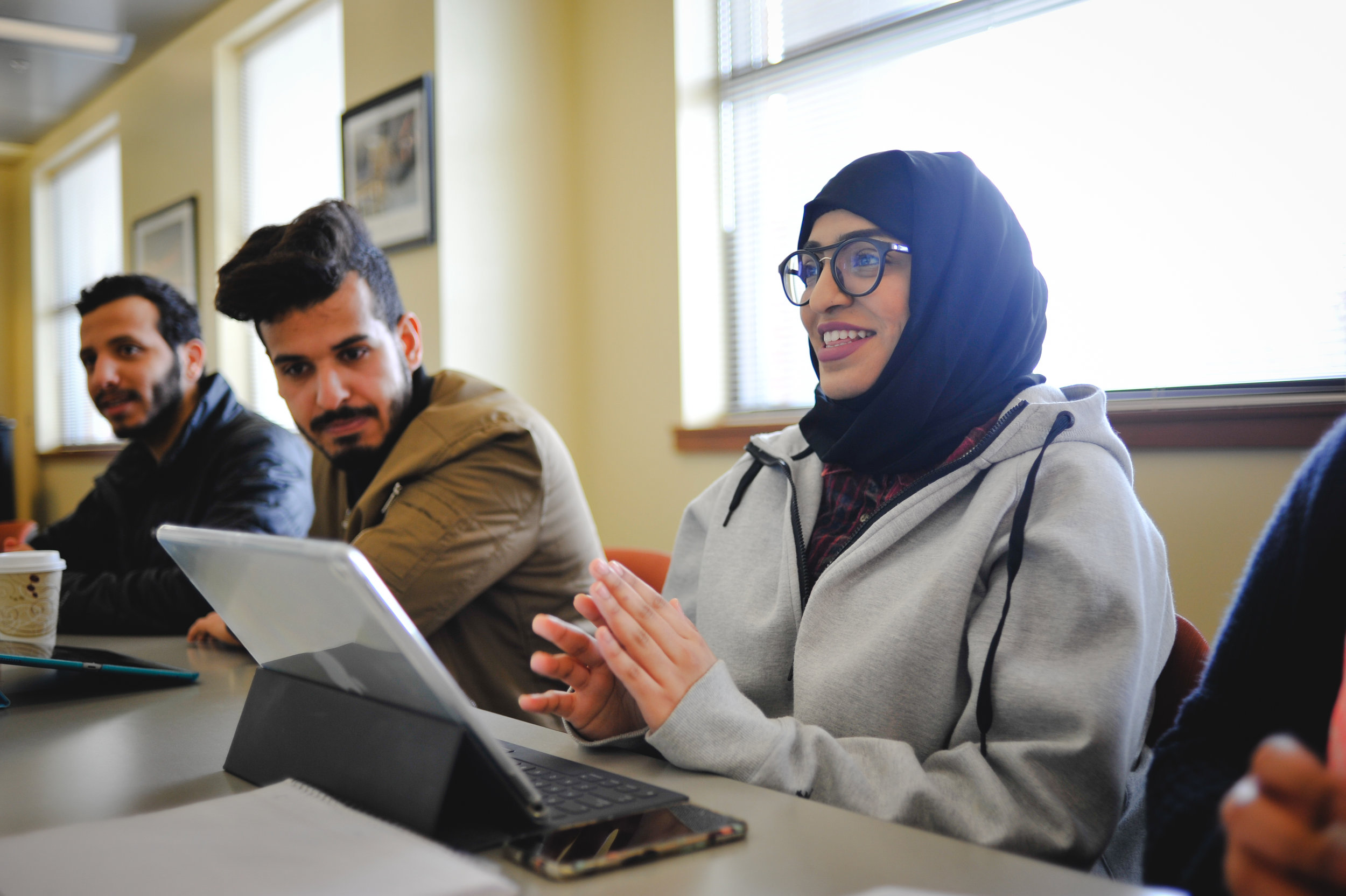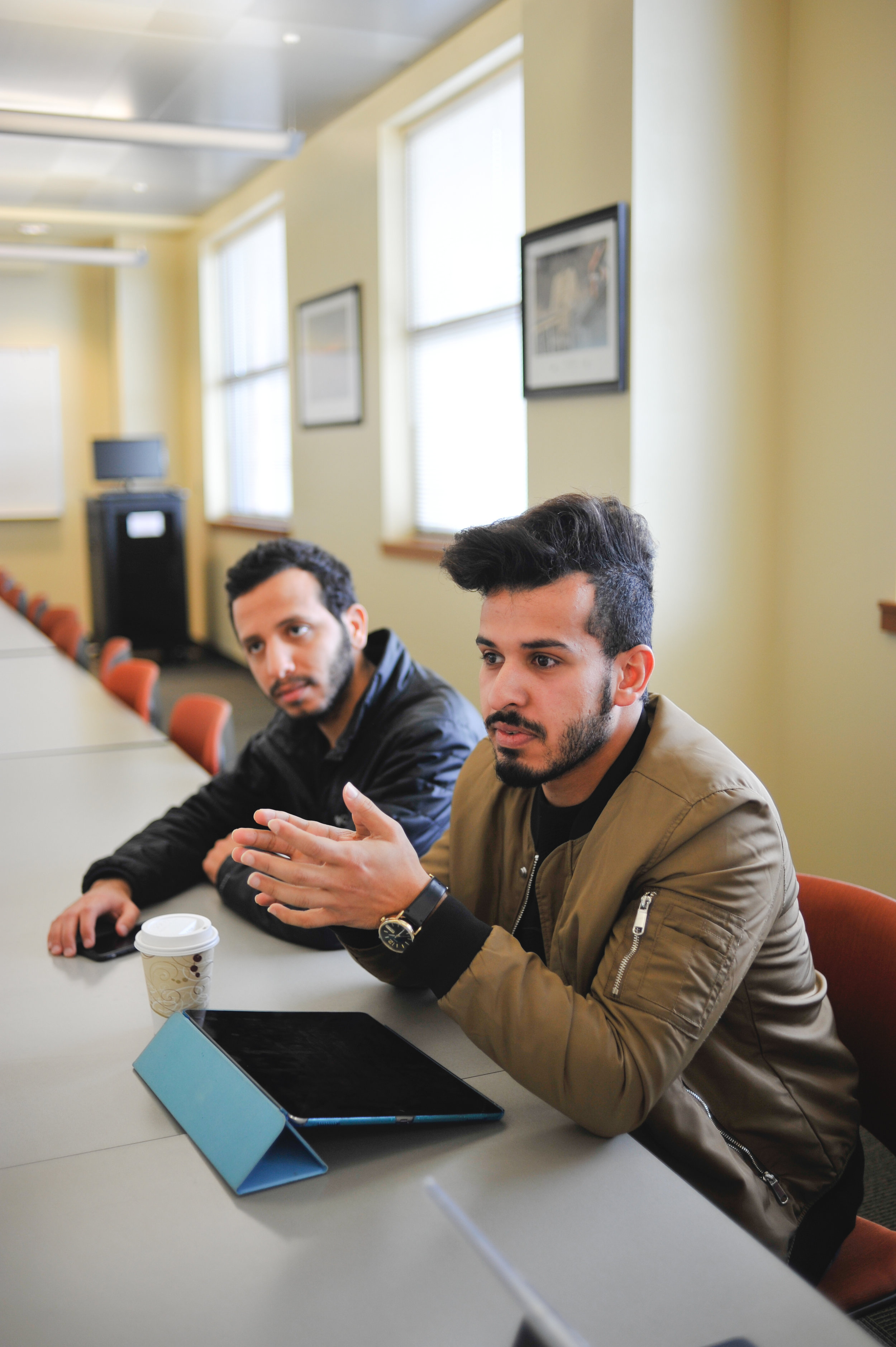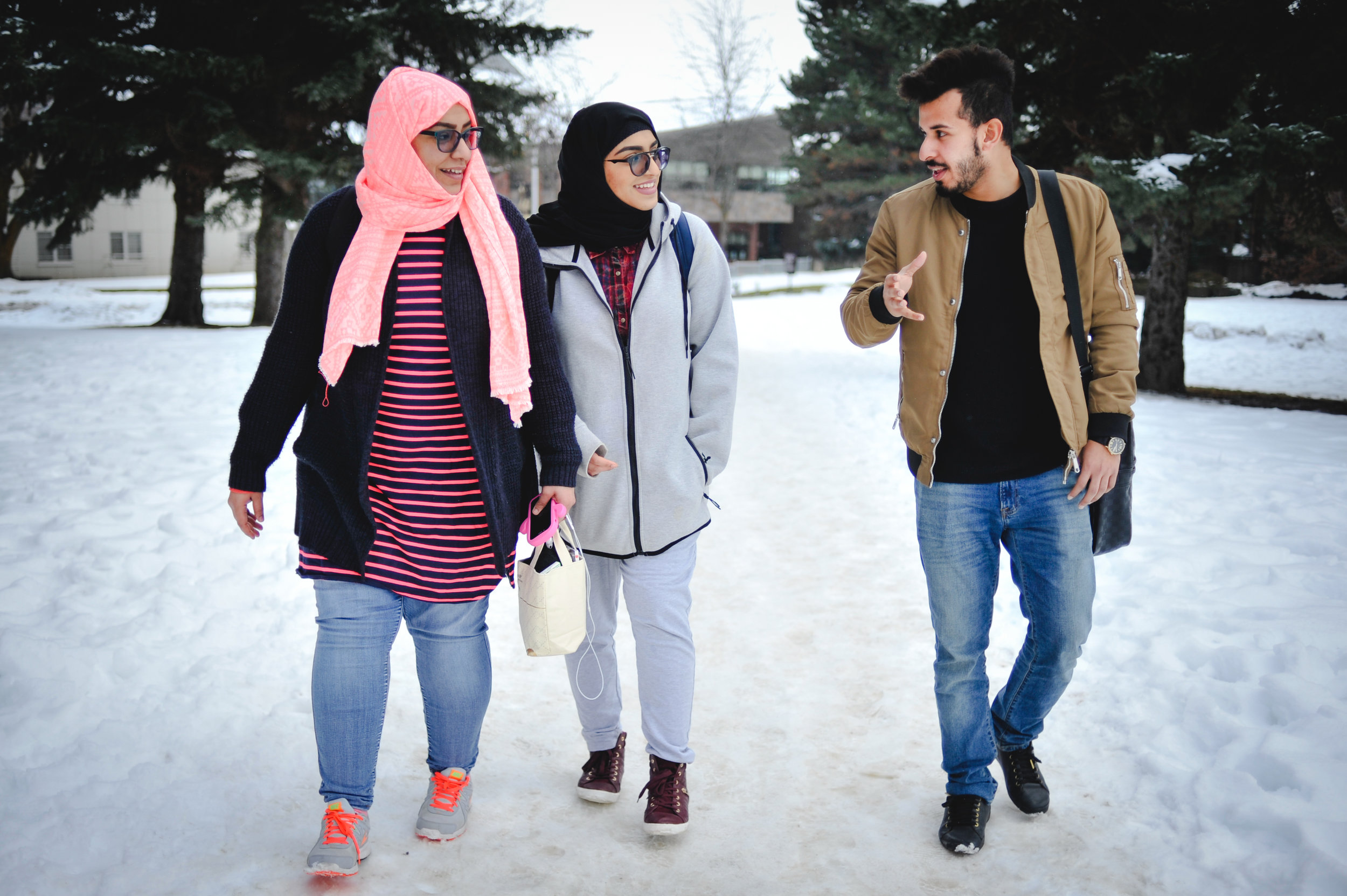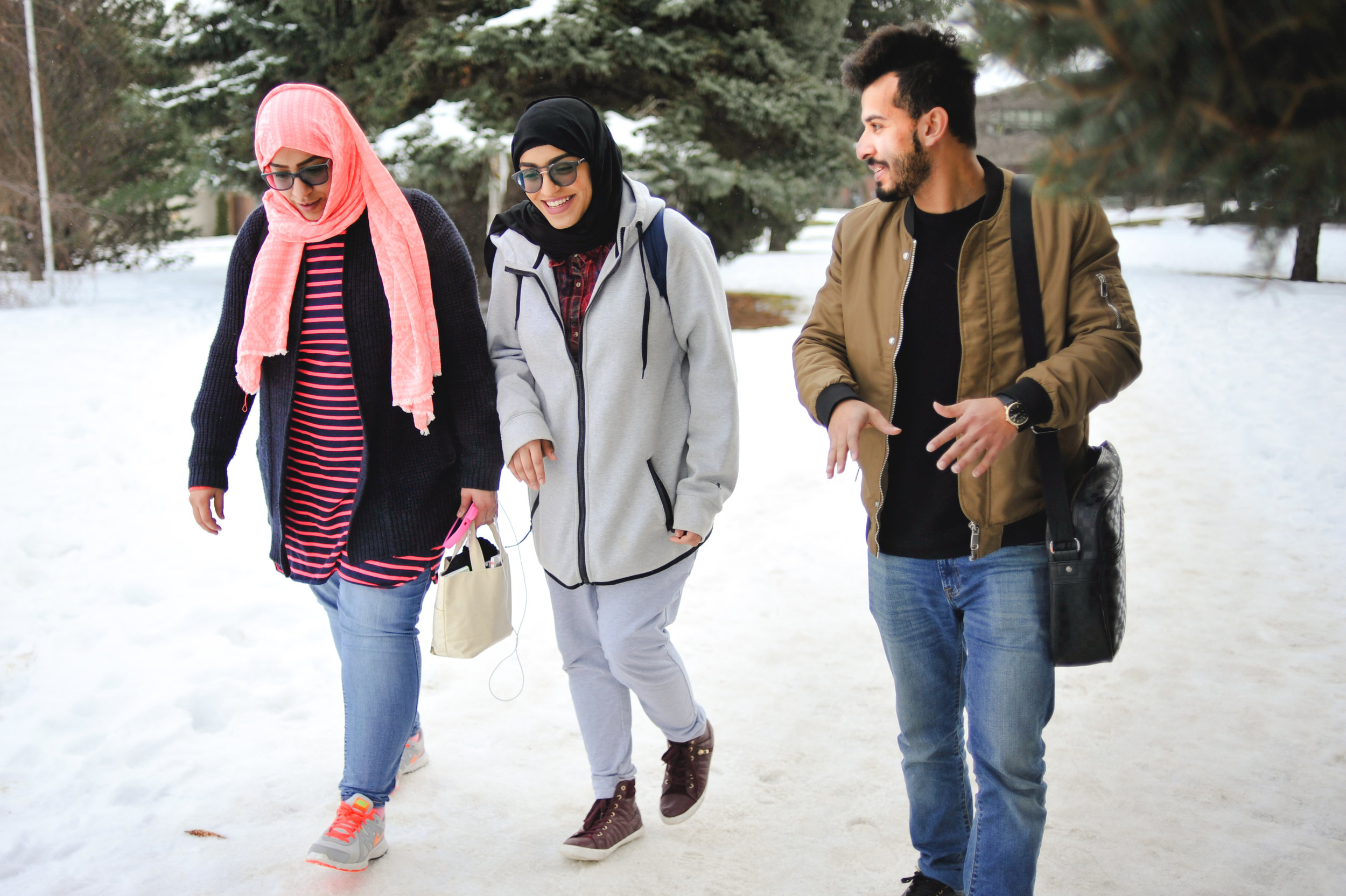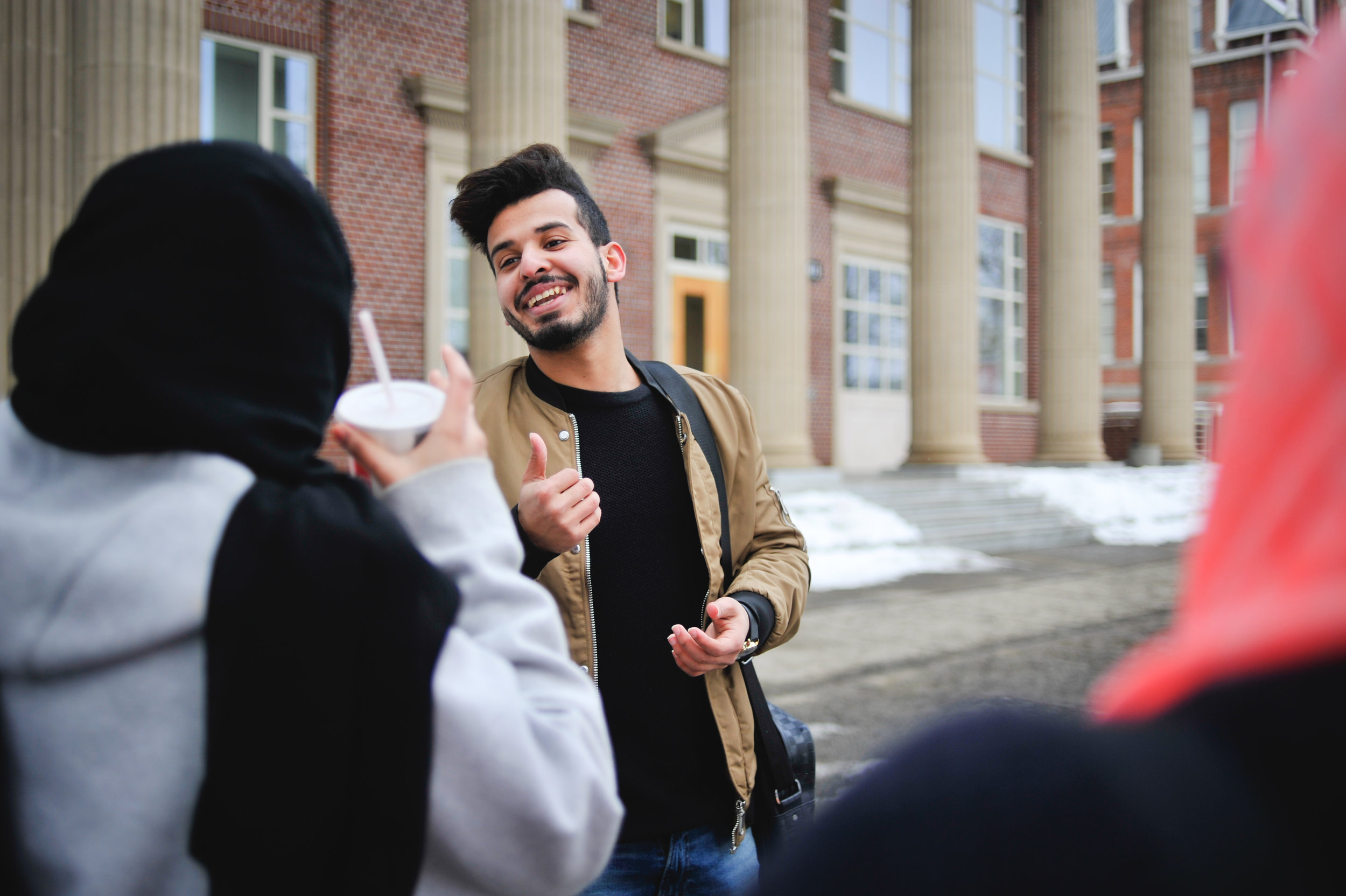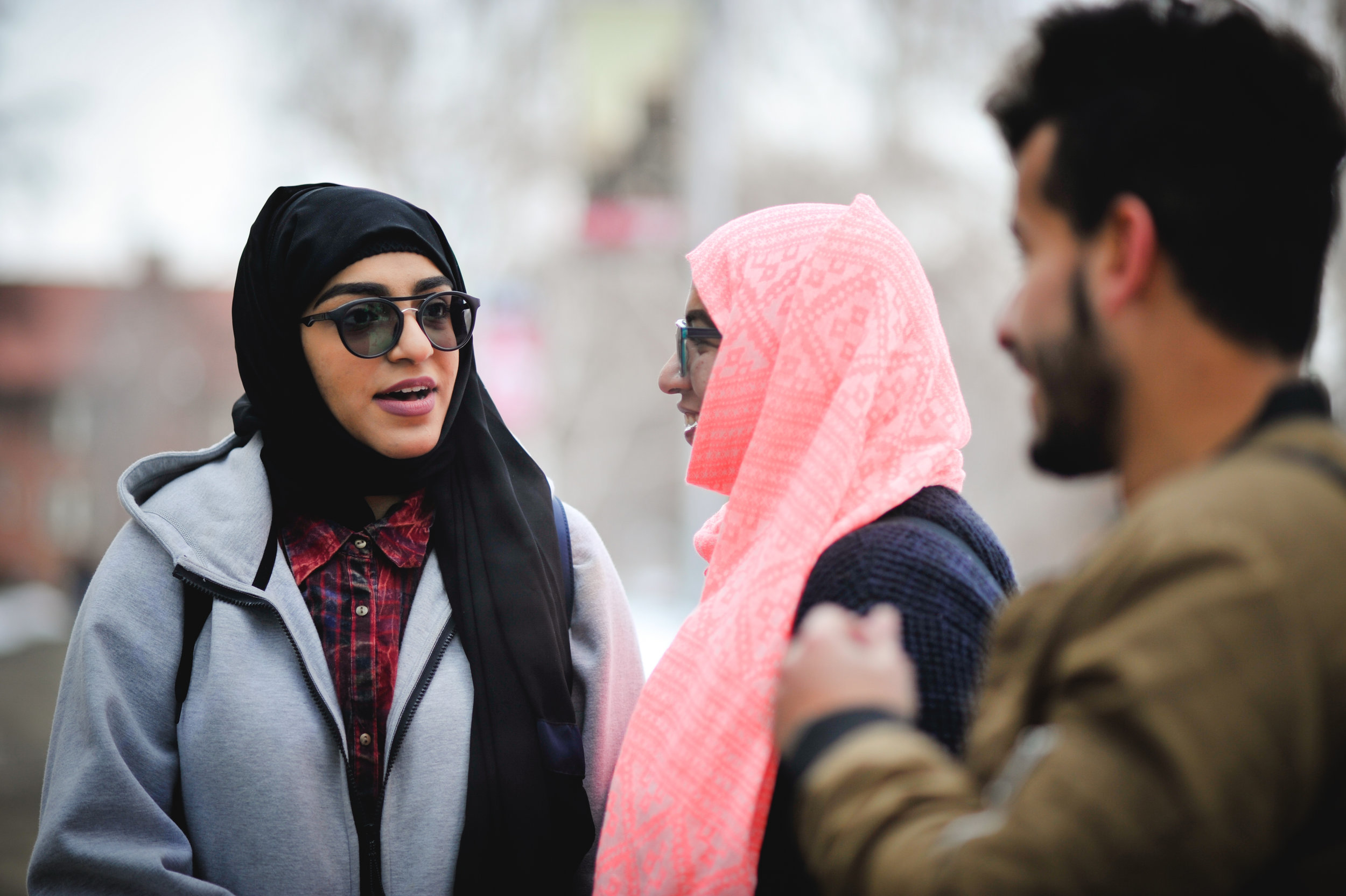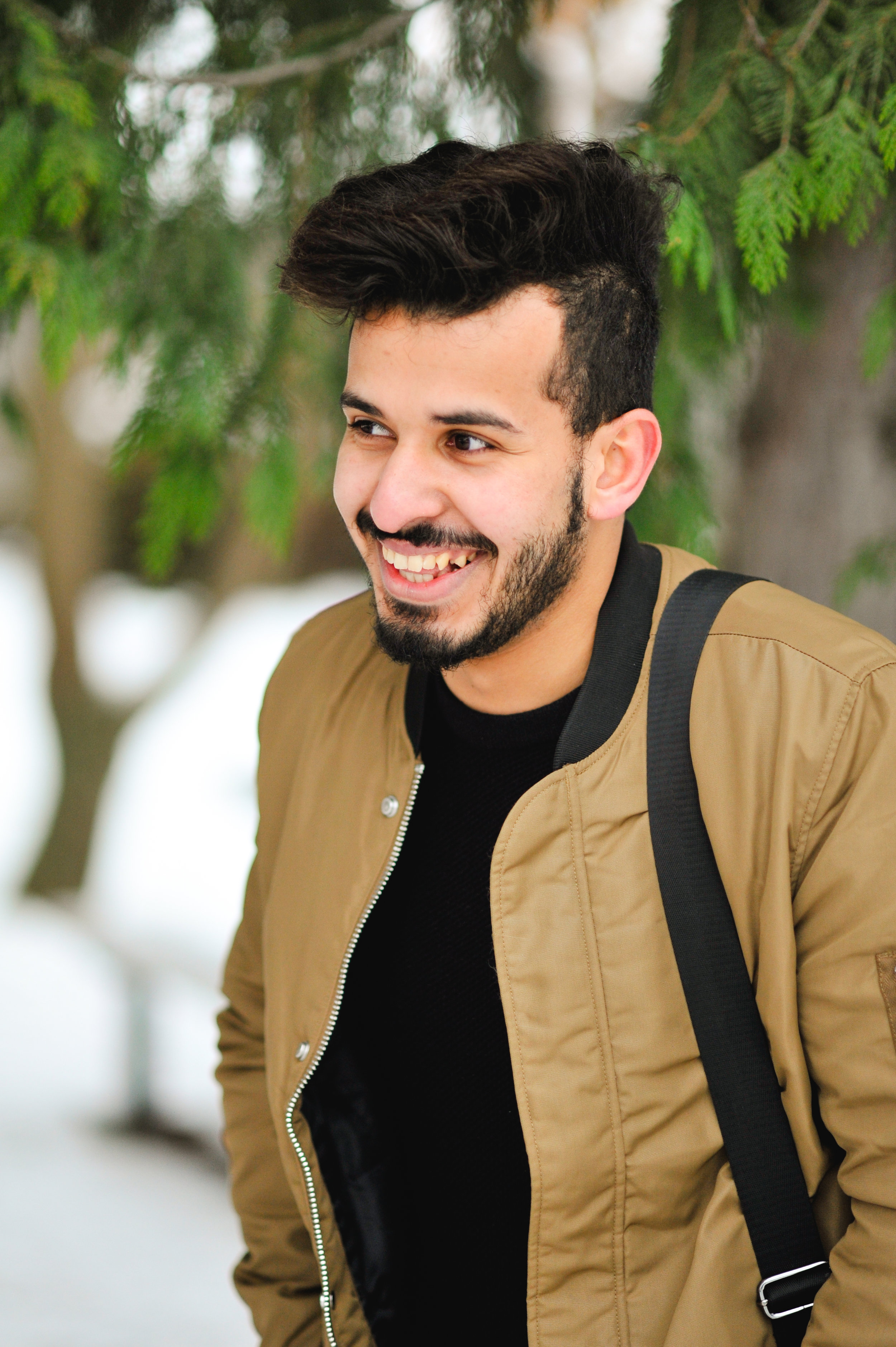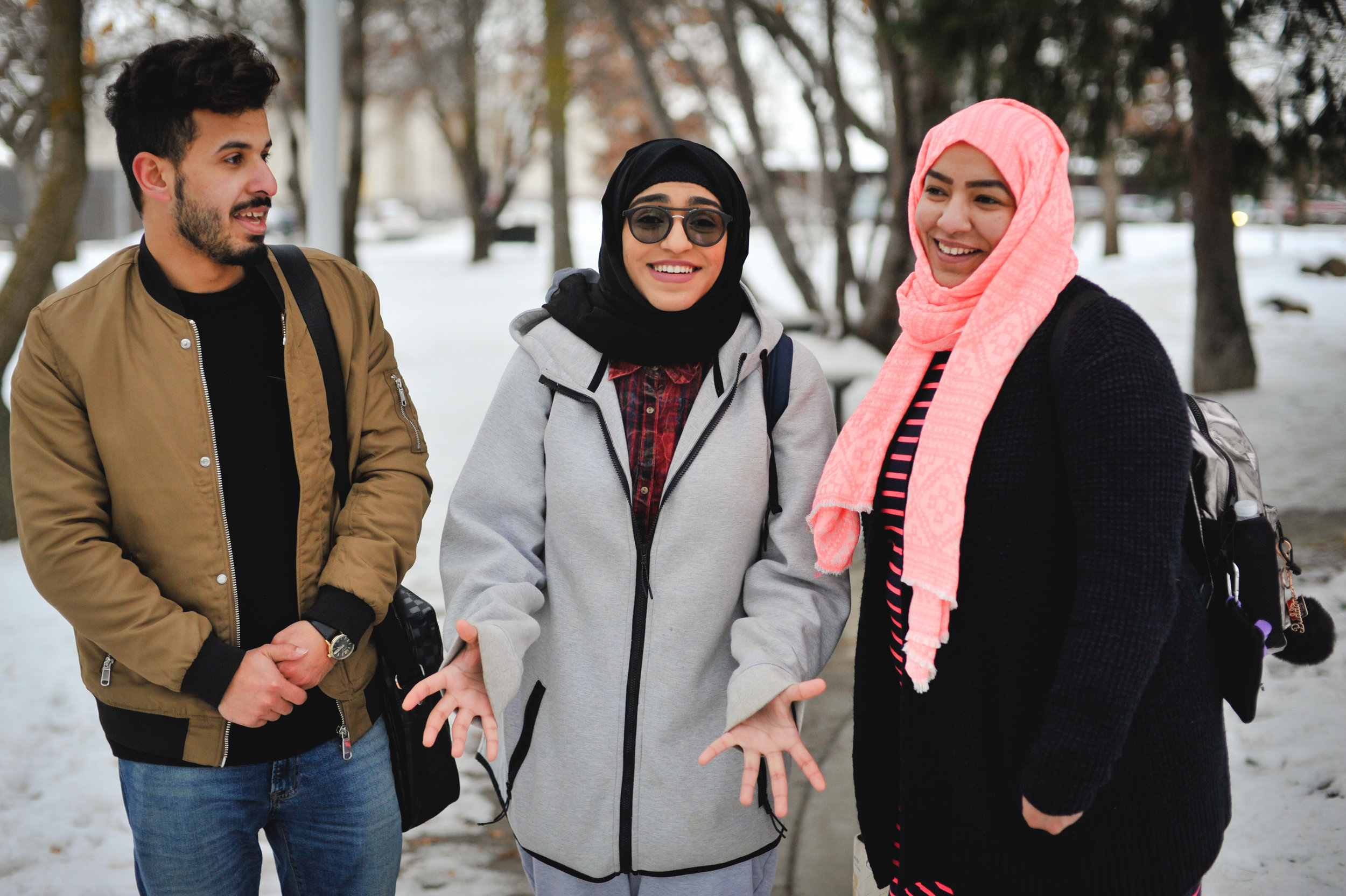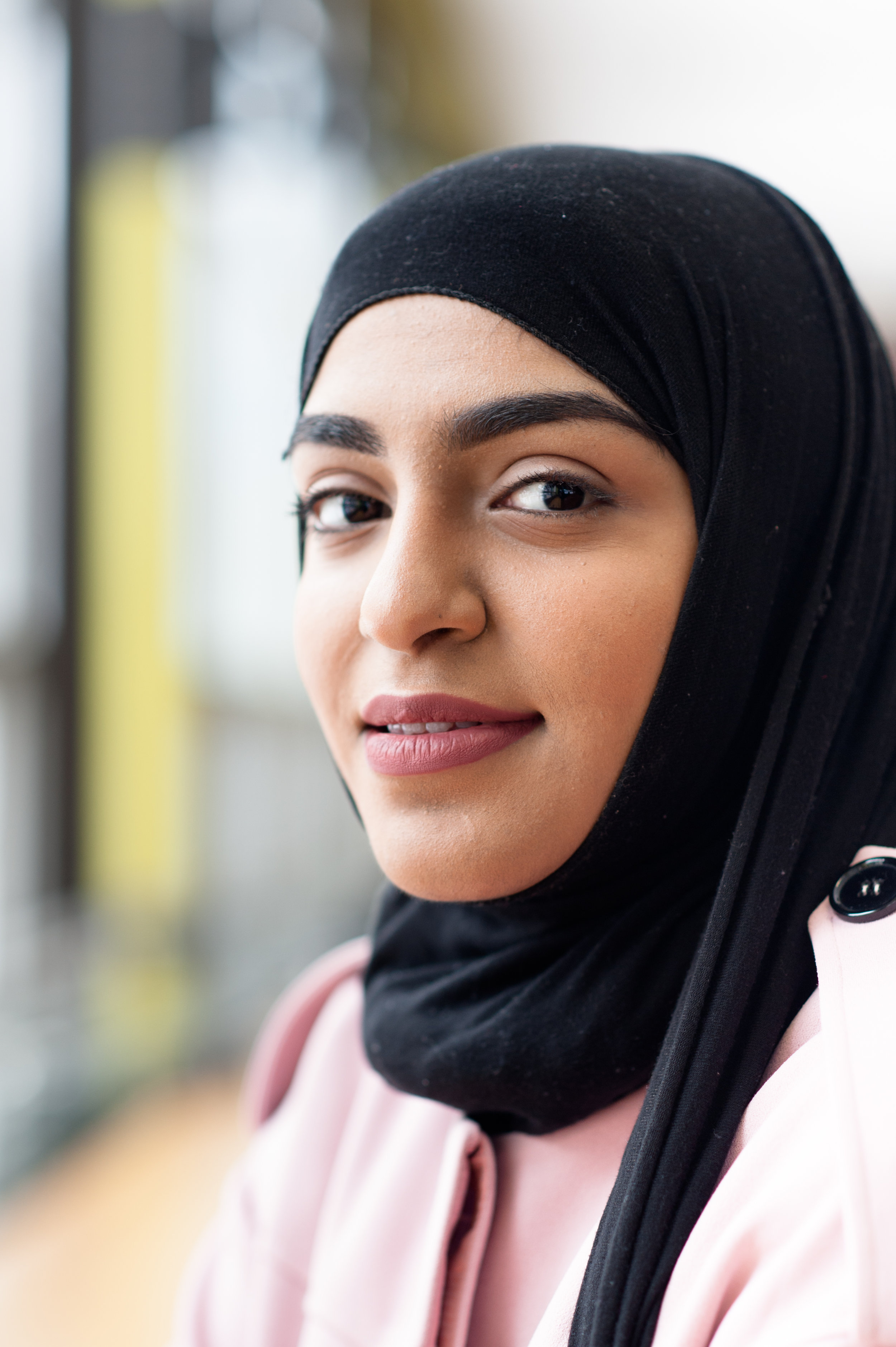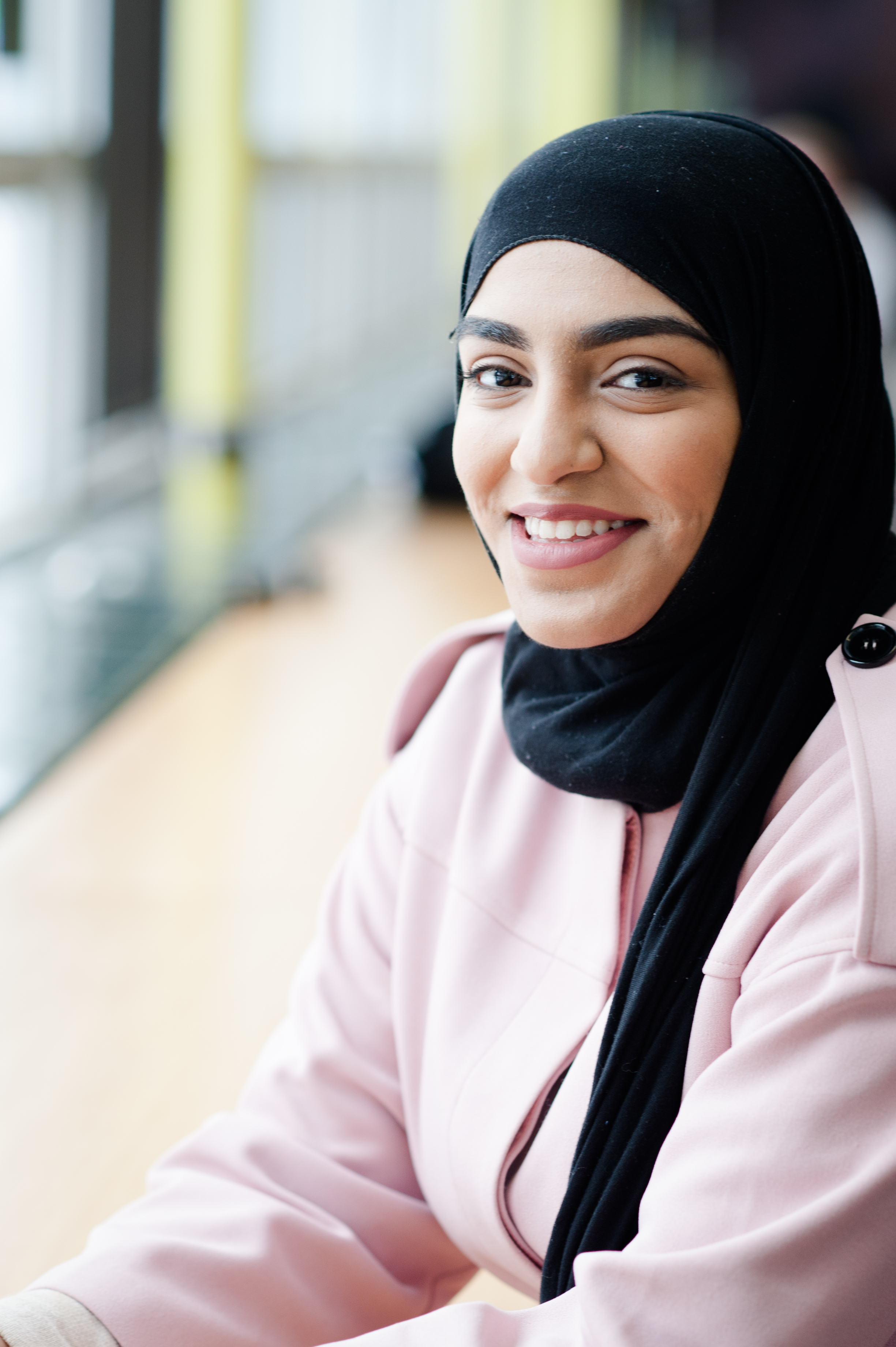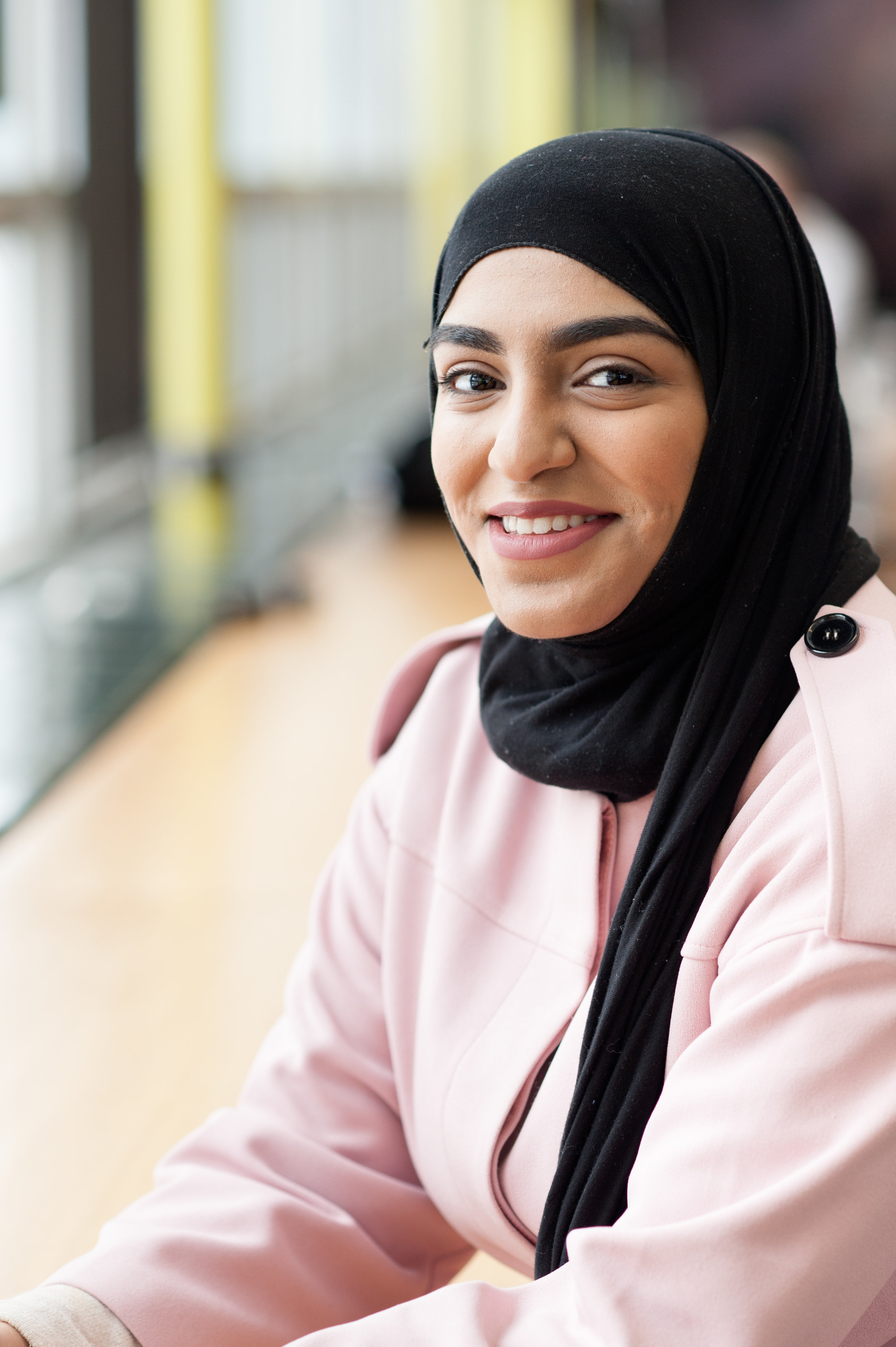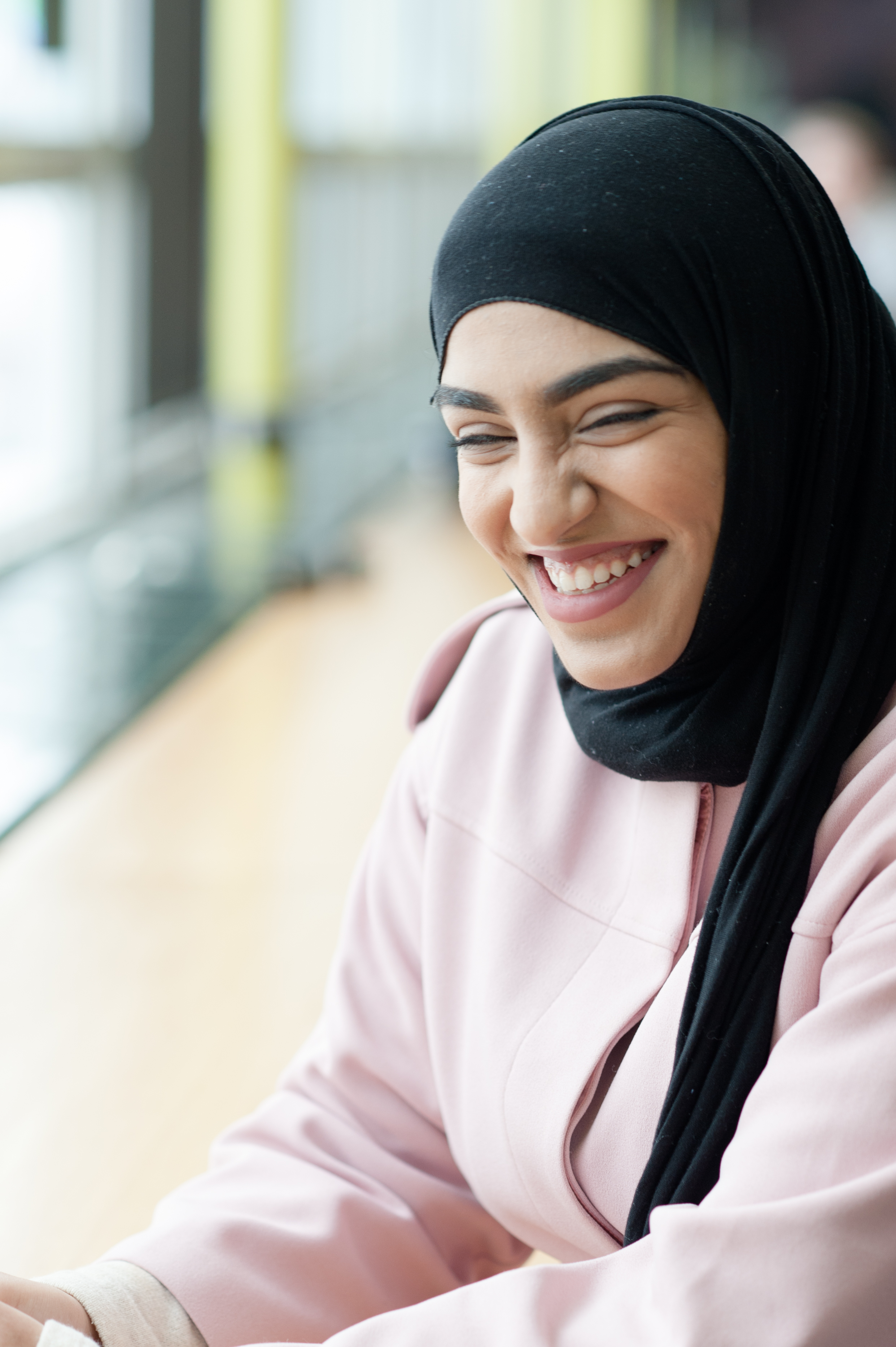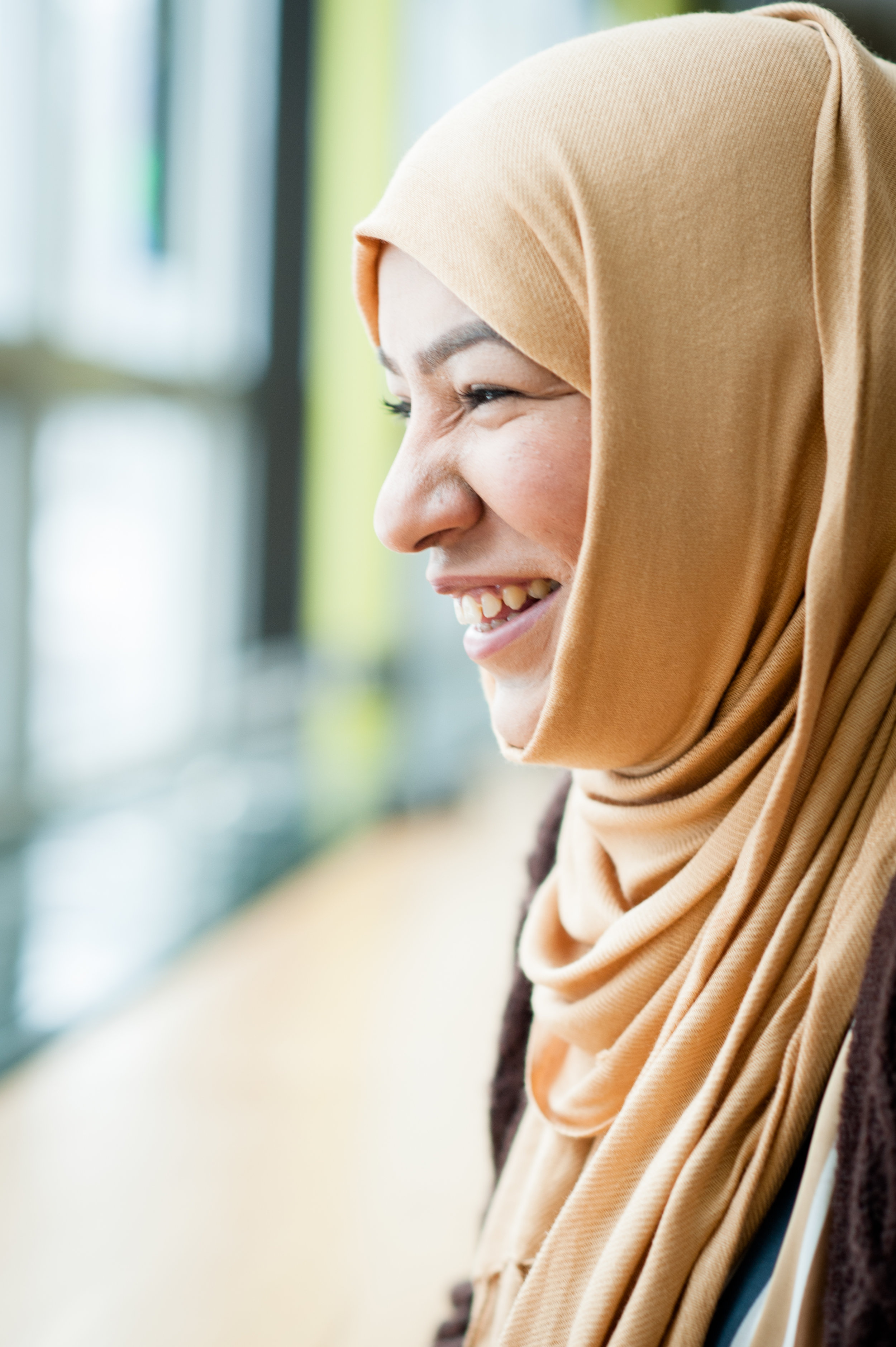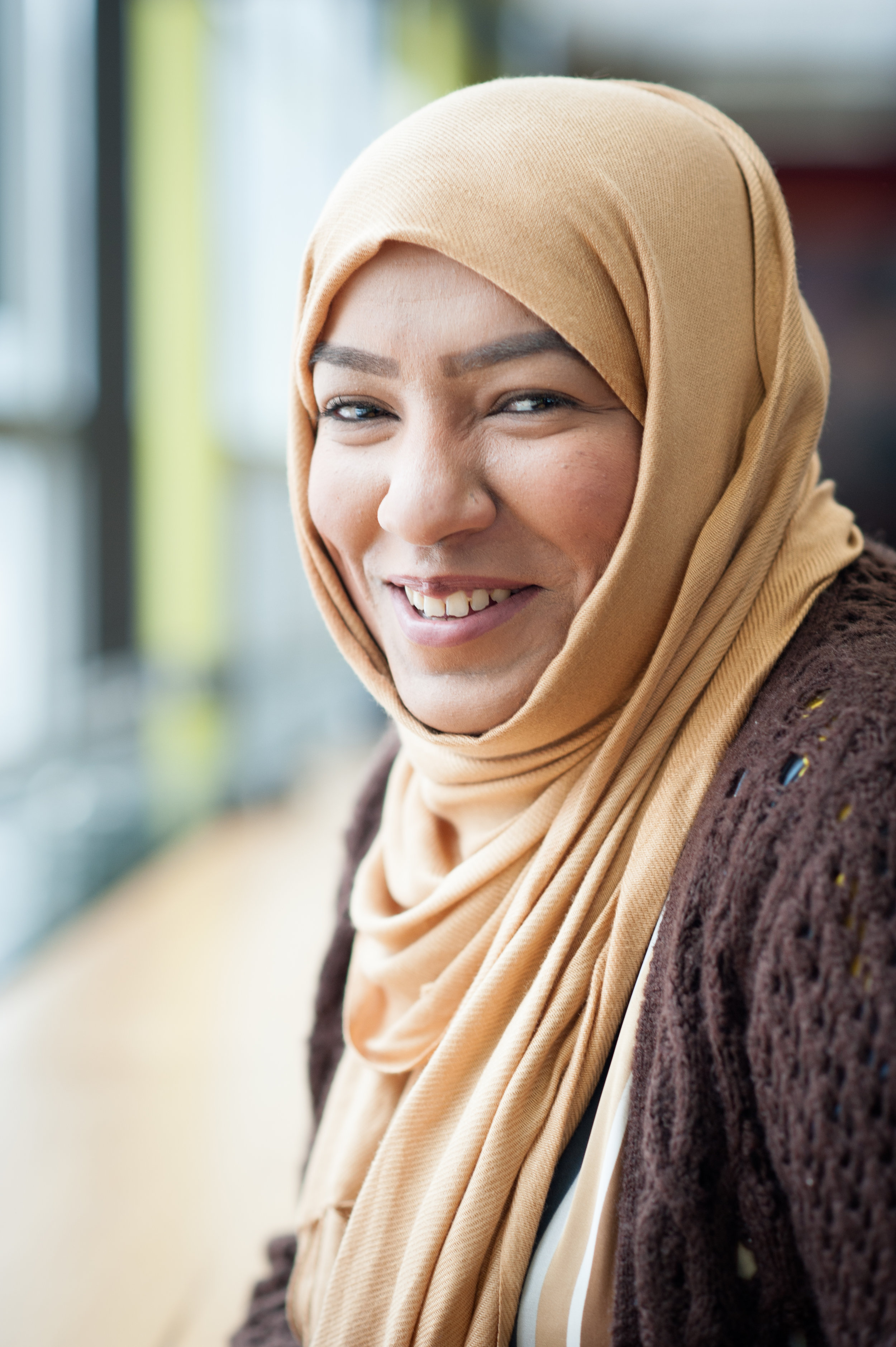Muslim At Central
Story by Lexi Phillips & Simone Corbett // Photos By: Xander Fu
During his candidacy, President Donald Trump talked about the possibility of implementing a “Muslim registry,” and on Jan. 27, a mere week after taking office, he signed an executive order to ban travel from seven predominantly Muslim countries to the United States for a 90-day period, and to suspend refugee admissions for longer.
Protests broke out across the country, chaos ensued at airports, and within a week the order was suspended by a federal judge right here in Washington State. As Pulse went to press, news broke that an appeal to reinstate the ban had beenunanimously ruled against, and an appeal to the Supreme Court looked likey.
Trump’s actions have sparked conversations about the larger issue of Islamophobia and possi- ble discrimination against Muslims in the U.S.
What are people saying at Central? In a letter to the campus community following the executive order, Central President James Gaudino said the ban may a ect one student but did not a ect any Central employees. “Central Washington University welcomes people from all walks of life, from all places on earth,” Gaudino’s message read. “We do not judge people by the origin of their birth, but by the content of their character. We embrace the value of a community enriched by diverse experi- ences, abilities, and cultures.”
Pulse reached out to scholars and Muslim students to get their responses to recent events, and to find out what life is like at Central as a Muslim.
“NO REASON TO FEAR”
“All of us know the misconceptions being said about Muslims and Islam,” says Zahiah Alkharnda, a third-year cellular and molecular biology student originally from Saudi Arabia.
She describes some of those misconceptions: “at we have some sort of idea to do Sharia law in America, or that we’re all terrorists, or that we have some kind of hate for other religions or other people from other beliefs.”
Even before he took office, Trump was criticized by many for his use of language that could be seen as promoting some of these misconceptions, particularly his use of the provocative term, “radical Islamic terrorism.”
“I think Trump’s candidacy emboldened individuals who were already prejudiced or Islamophobic to come outright and say it, and act upon it,” says Dr. Geraldine O’Mahony, interim director of the Douglas Honors College at Central and pro- fessor of theology.
In fact, the FBI reported a 67 percent rise in hate crimes against Muslims in the United States between 2014 and 2015. Anti-Muslim intimidation crimes, de ned as threatening bodily harm, rose in 2015 to their highest reported levels since 2001, according to a Pew Research report.
Alkharnda describes a recent incident in Ellensburg where a man in a truck with a Trump sticker on it pulled up alongside her and said, “Do you know why I almost ran you over? Because you don’t belong in this country!” Another man stopped to intervene, and she says she just walked away.
“It really shocked me, because this was Ellensburg! is was CWU! And we’re really a diverse campus. We’re very welcoming, and everybody’s so nice.”
Despite this experience, she says, “I would never say that the whole American community is like that. But you can imagine if one Muslim person came out and did something, boom, we’re all terrorists. We’re all like that.”
O’Mahony says the Muslim population is misrepresented by terrorist groups like Al-Qae-da, Al-Shabaab and Boko Haram, which make up an infinitesimal percentage of the world’s Muslim population.
“I think the fact that he lumps all Muslims in together is shocking and ignorant, but also his un- derstanding of the threat of terrorism is so myopic, that when he talks about ‘radical Islamic terrorism,’ as he phrases it, he’s actually, in a weird way, giving more power to the terrorists that he’s saying he’s ghting,” asserts O’Mahony, who lived and worked in various countries in the Middle East and holds a Master’s Degree in Islamic Studies.
She says terrorists claiming to be Muslim “have taken their own idea of Islam and twisted it to justify their political goals and a lust for violence.”
Alkharnda adds, “There are wrong things that Muslims do, but not Islam. And that’s really important to differentiate, because in every culture and every religion, people do wrong things. So, just because I’m a Muslim, and I’m a Saudi, it doesn’t mean that all of Saudi Arabia and all Muslims do the same as I do. Because again, we are individuals.”
Mayowa Makinde, a Muslim first-year student from Nigeria, says, “People have no reason to fear Muslims.” He refers to the Qur’an’s teaching of peace: “If someone has labeled themselves Muslim, then they can testify that they don’t like trouble.”
For these students, being Muslim isn’t just about religion, it’s a way of life. Alkharnda says, “Islam is not just a name, it’s a behavior.”
“So, even if I don’t wear my hijab... I am a Muslim because of the way I act with people and the way I behave. If you are a good person, I believe you are a Muslim.”
THE “MUSLIM BAN”
In response to the recent “Muslim ban,” as the executive order on immigration is being called by many, third-year safety and health management student Khalid Alamoudi from Saudi Arabia argues it’s hard to make a connection between the law and religion or religious-based terrorism, as the order doesn’t apply to all Muslim-majority countries.
Majed Alhumaidani, senior political science student from Saudi Arabia, additionally suggests that none of the countries selected are home to people or groups who pose a threat to the U.S.
Banning or registering people based on their religion “is something that should terrify every citizen— or non-citizen—in this country,” O’Mahony warns. “I bet if you talked to Germans during World War II, when they started seeing Jews being registered, and the Jews had to start wearing yellow stars, they probably thought it could never happen.”
O’Mahony suggests “nothing is beyond the pale in terms of possibilities” when it comes to the future of Muslims’ safety in the U.S.
From many people’s perspective, singling out a single religious group is not just o ensive, it’s anti-American.
“One thing that makes America special,” says Tariq Alyoussef, a fourth-year information technology and administrative management student also from Saudi Arabia, is that “it’s accepted all of the religions and all of the beliefs.
“That’s why when I was little, I wanted to go to America, because I knew how the freedom was, and the open-mindedness, how they were going to accept me.”
But, he says, Trump “is going to change many people’s beliefs about America.”
FAMILIARITY BREEDS TRUST
O’Mahony, who is originally from Ireland, recalls feeling fascinated by the fact that such a large portion of the U.S. follows the religion of Islam, yet so many don’t know anything about it. Ignorance can lead to misconceptions.
“If we in America want to have relationships with people in other parts of the world, we need to be able to comunicate and listen, and hear, but also to understand di erent perspectives,” O’Ma- hony says.
Saudi student Alkharnda agrees. “If you care enough to understand and learn about other reli- gions and cultures, you will be able to communicate with these people from these cultures. If you don’t know it, you will not trust it.”
Dr. Michael Hundley, a lecturer in Central’s Department of Philosophy and Religious Studies, suggests that learning about other religions allows you to better understand people and see the world on their terms, which can be vastly different from the lens we view our world from. Not only does learning about different religions and cultures help you to communicate more effectively, it also helps you to better yourself.
Alyoussef experienced this rst-hand. “I have been to Japan, and I spent all of my trip [learning about] the temples and the beliefs, which was really interesting to me. I learned a lot, and I don’t have to follow their religion, but that will help you understand something else to add to your personal value,” he says. “I believe understanding other cultures will really make you a better person.”
O’Mahony shares the same idea. “Learning about other religious traditions has helped me work through various stages in my life—what’s im- portant to me and what isn’t, what I do or do not believe. It’s actually clarified a lot within the tradition that I grew up in, and I think people will find beauty in every tradition that they look at.”
Nigerian student Makinde says this learning goes both ways. “I’m taking an introductory religious course; I think it helps me... I want to become religiously literate so I don’t see people do stu and then just look down [on others],” he says.
“I think people should learn at least a basic understanding of what [Islam] is about so they don’t go about having misconceptions.”
COMMON MISCONCEPTIONS
Anybody who uses social media, watches TV or has one particularly bigoted relative has probably seen or heard at least one stereotype surrounding Muslims or Islam. e big one: all Muslims are terrorists. Other misconceptions relate to whether Muslims can truly be Americans, and how Muslim women are treated.
“Because I look like I’m not American, or because I look like I’m a Muslim person,” Alkharnda says, people assume “that I don’t know how to speak English, or write in English. It makes me really uncomfortable, especially when it’s from professors, not only students.”
“We’re just here, as students. That’s the first thing that people should know: we are individuals... I’m a ‘CWU student’ before I am a ‘Muslim CWU student.’”
O’Mahony explains a related misconception she often comes across is the idea “that Americans aren’t Muslims, or that Muslims can’t be American. Islam is the fastest-growing religion in the United States; there [is] no shortage of Americans embracing Islam and converting to Islam.”
Alyoussef recalls a remark made to him by a woman who “was mentioning that she understands that in my culture, men don’t respect women, and women are [less than] dogs,” he says. “that really shocked me, because we really value women in our culture... Women are really important, we would protect them with our lives.”
According to Alkharnda, there is an entire chapter dedicated to women in the Qur’an. She says Islam is one of the first religions to speak about women’s rights. “Maybe cultures [or] countries don’t practice that right for women, but in Islam, women have a huge, important part in life.”
O’Mahony also talks about the issue of veiling, which is a Muslim woman’s choice to cover herself using a type of veil such as a hijab, chador, niqab or burka, to name a few. “It’s one way to express belief and faith,” she explains. “ There are Muslim women who choose not to veil, there are Muslim women who choose to veil. It’s a particular way of understanding modesty and one’s relationship to Allah.” Alkharnda says whether Muslims wear a hijab or not is a personal decision. She explains wearing a hijab as an expression of one’s identity in Islam. For women and men, “hijab is a concept, it’s not just a piece of clothing,” she says. “It means a barrier and it’s not only to cover my hair or to cover my body, it’s also to cover my actions.”
Not only does wearing a hijab allow Alkharnda to express her con dence in her religion, but she is also able to express her sense of fashion through it as well, she notes.
In Western society, veiling is often thought of as a way for women to be controlled or suppressed by men. “ Thee idea that the only way women can express themselves as ‘free’ is to wear less... is rather antithetical to freedom itself,” says O’Mahony. “It’s also denigrating of Muslim women; it treats Muslim women as if they are pawns and have no agency.”
O’Mahony continues to relate the issue to one that Western women similarly face. “I think this is embedded in the sexism and the misogyny of this country and the West, in that we think it’s okay to tell women that they don’t know their own minds,” she says. “Muslim women in particular are getting the blunt end of that right now.”
Why might non-Muslims be so stuck on these skewed ideas of Islam?
The answer, according to Hundley, lies in what we see in Hollywood and in the media. “You hear from some people that it’s a religion of peace, but that’s all you hear, and no one really explains to you what that means and why they understand it that way. So, you kind of have that on one side of your brain, but [on] the other side of your brain, you see all the stuff in Hollywood, and you have a very clear image of this bad stuff,” Hundley explains. “So, when someone tells you it’s peaceful, it sounds nice, and you want to believe it, but you need some substance or a new image to replace the other one with.”
Saudi Arabian-born first-year accounting student Muhannad Alanazi agrees. “The media made a picture of Islam,” he says, advising fellow Americans to do their own research, as not everything in the media is going to be 100 percent accurate.
MAKE AMERICA GREAT AGAIN
Many of Central’s Muslim students are international (see sidebar). The students Pulse spoke to say they have enjoyed their time in Ellensburg overall.
“I would say [being at Central is] a pretty great and fun experience,” says Alkharnda. “I feel like I definitely learned a lot about other cultures and even about myself—I developed, being here.”
Alyoussef agrees. “I think what’s good about CWU [is that] we have a lot of cultures here, and being with others—like, for example, the Japanese culture or the Chinese culture—helped me a lot to [adapt to] this culture.”
Makinde says his first year at Central has been a bit more of a challenge: “It’s not all that easy, but I think I’m going to pull through in the end... this is my first college experience, so I think I’m still adjusting.”
Cultural adjustments include religious concerns. “ There isn’t a place for prayer at Central,” Alkharnda notes. “ That was one thing that I would say almost every single Muslim student who came here wanted. Because that’s really important; we have ve prayers a day, and we have almost two of them that we do during class times. So, if I don’t have a nearby place to go to pray, that would be really difficult for me.”
Alyoussef adds, “ The international office provides a room every Friday, which is nice of them, but we would still like a room so that we can practice every day.”
Alkharnda says they’ve been trying to secure a permanent room for daily prayer for about two years, and hopefully will be getting one soon. It’s part of the legacy she hopes to leave behind when she departs Central.
She also expresses a desire for a private room for Muslim women to exercise in, as she says many feel uncomfortable exercising in the gym in layers of clothing.
Alhumaidani suggests he’d like to see a larger variety of religious texts, both in English and other languages, at the campus library.
These might be their messages for President Gaudino.
And if these students had a message for President Trump?
“Don’t fear Islam or Muslims,” Makinde says. “Islam is peace and Muslims are peaceful.”
Alkharnda adds, “Muslims are part of this country, and they’re part of building America, and they’re part of making America great again.”
Sidebar
FIVE PILLARS OF ISLAM
The foundation of Muslim life, The “Five
Pillars,” are:
Shahadah: Declaration that there is no deity but Allah and Muhammad is his Prophet;
Salah: Establishment of the five daily prayers;
Zakaat: Mandatory giving to the needy;
Siyam: Fasting during the month of
Ramadan;
Hajj: The pilgrimage to Makkah for those who are able.
Source: theislamiccenter.com
DIFFERENT TYPES OF VEILS
Hijab: From the Arabic for veil, a scarf that covers the head and neck.
Al-Amira: A two-piece veil consisting of a fitted cap and a scarf, which cover the head and neck.
Shayla: a long scarf wrapped around the head and tucked or pinned at the shoulders.
Khimar: A long veil that hangs nearly to the waist, covering the head, neck, and shoulders.
Chador: A full-body cloak, often worn with a headscarf underneath.
Niqab: A veil for the face that often covers everything but the eyes, worn with a headscarf.
Burka: A veil that covers the entire face and body, with a mesh screen covering the eyes.
Source: bbc.co.uk
MUSLIM POPULATIONS
About 370 international students call Central their home—160 of which identify as Muslim, according to the Office of International Studies and Programs. That means Muslim students make up about 43 percent of the population of international students on Central’s Ellensburg campus.
International Studies recently released a video emphasizing that students from all countries are welcome at Central. The video, called #youarewelcomehere, can be found on the International Programs page of the Central website.
Data from Pew Research Center estimates 3.3 million Muslims lived in the U.S in 2015. That number is expected to double by 2050, according to Pew Research.
In fact, by 2040, Pew reports that Muslims are expected to be the second largest religion in the U.S. behind Christianity.
ABOUT THE SAUDI STUDENT
ASSOCIATION
Officers of Central’s Saudi Student Association say their club aims to introduce and unite their culture with others on campus. The club spreads awareness about the Saudi culture through hosting events which celebrate Islamic holidays, such as Eid al-Fitr and Eid al-Adha. The club members emphasized this club is not just for Muslim students; all are welcome regardless of their religious beliefs.
“We’re really open and we’re really friendly. We learn about other religions and we can be friends with you guys,” says club president Tariq Alyoussef. “We love to communicate with [other religions].”
To learn more about Muslims or Islam, the Saudi Student Association holds “Talk to a Muslim” sessions Thursdays from 12 p.m. to 3 p.m. in the SURC, and they encourage you to approach them if you have any questions or concerns, or if you just want to have a conversation.

